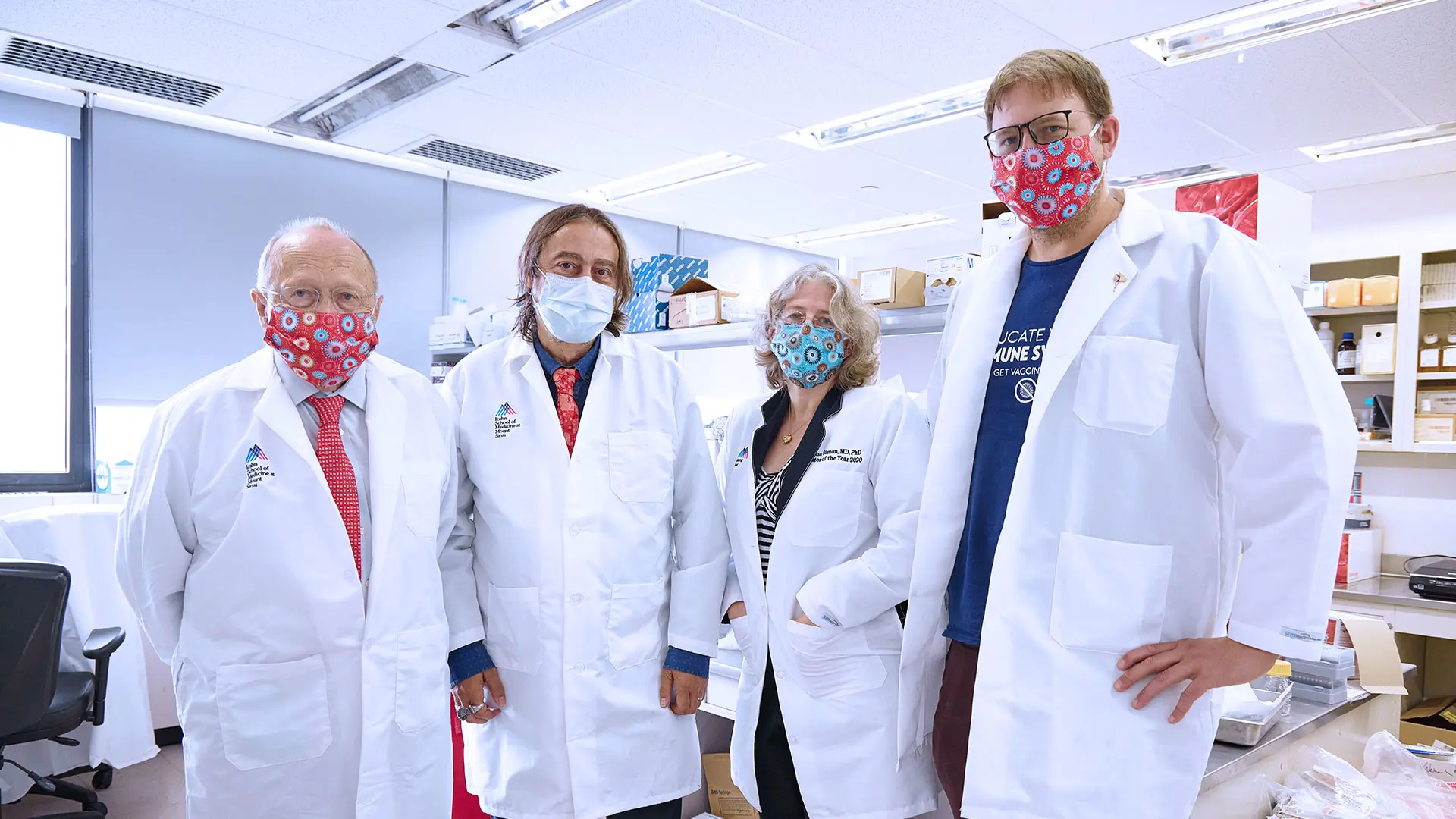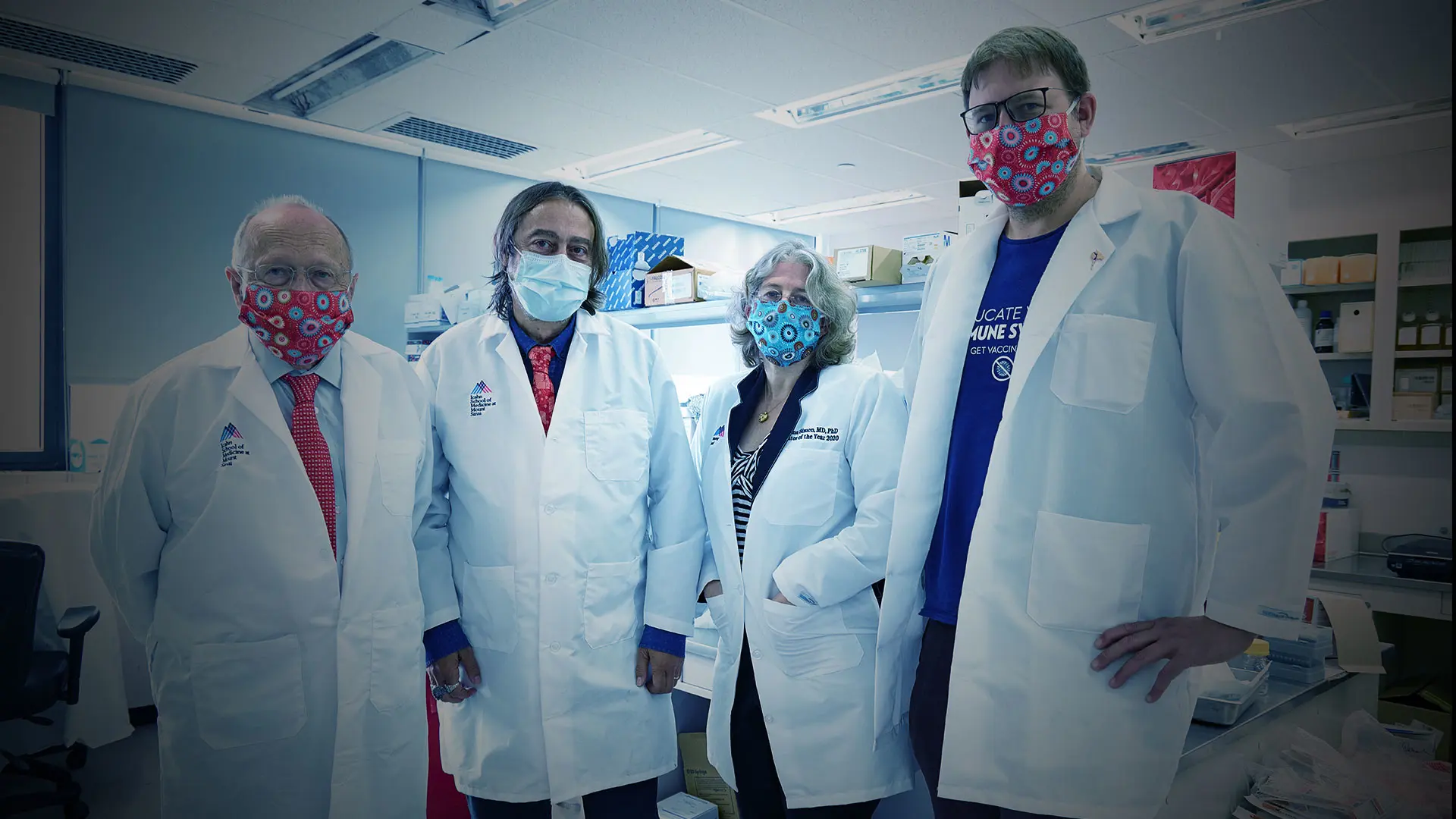The award in May 2021 by the National Institute of Allergy and Infectious Diseases (NIAID) underscores the Department of Microbiology’s global leadership in pathogen research, marking the third time it has received a seven-year NIAID contract to develop better diagnostics, therapeutics, vaccines, and disease management programs. As part of that broad mandate, the latest contract also calls for risk-assessment studies of as many as 15 respiratory viruses each year.
“Over the course of these 21 years, our Department has built tremendous strength not just in the field of basic science, but in translational science where we continue to develop antivirals and vaccines that can bolster our armamentarium against threatening viruses,” says Peter Palese, PhD, Horace W. Goldsmith Professor and Chair of Microbiology, and Professor of Medicine (Infectious Diseases). The Department he leads is No. 2 in the nation for National Institutes of Health funding among U.S. medical schools (Blue Ridge Institute for Medical Research data, fiscal year 2020). “This work includes major programs to develop broad spectrum antivirals that are active against not just one virus, but many different ones.”

From left: Peter Palese, PhD; Adolfo García-Sastre, PhD; Viviana Simon, MD, PhD; and Florian Krammer, PhD
Indeed, the Department’s previous NIAID contracts have paved the way for multiple advances under the leadership of Adolfo García-Sastre, PhD, Director of the Global Health and Emerging Pathogens Institute and the Dr. Arthur M. Fishberg Professor of Medicine, who serves as principal investigator. Florian Krammer, PhD, Professor of Vaccinology, and Viviana Simon, MD, PhD, Professor of Microbiology; Pathology, Molecular and Cell-Based Medicine; and Medicine (Infectious Diseases), are the co-investigators.
Universal influenza vaccine moves toward human challenge trial.
For example, in response to the 2009 H1N1 flu pandemic, these leaders along with Dr. Palese launched seminal work in developing a universal influenza vaccine. That vaccine— which can be administered only once or twice during an individual’s lifetime, rather than each year—has undergone two phase 1 clinical trials and is moving toward a human challenge trial. This work also allowed the team to respond quickly to the COVID-19 outbreak. “We were able to screen compounds that had potential for treatments, and by testing COVID-19 proteins, we identified targets and inhibitors of these targets,” says Dr. García-Sastre.
In human trials now: an inexpensive, easily produced COVID-19 vaccine.
Additional work led by Dr. Palese and his colleagues, in collaboration with the University of Texas in Austin, has produced a COVID-19 vaccine that is currently being tested in human trials in Thailand, Vietnam, Mexico, and Brazil. According to Dr. Palese, that vaccine could be easily produced and distributed in low- and middle-income countries for as little as $1 a dose, compared to the $30 to $60 a dose price range of the two current major vaccines.
The team designed Mount Sinai’s COVID-19 vaccine to use the avian Newcastle virus (NDV), and constructed it similarly to an influenza virus vaccine, which can be manufactured in embryonated or fertilized chicken eggs. Early phase 1 clinical testing in Vietnam and Thailand has shown positive results. Phase 2 testing is about to ramp up, and accelerated phase 1 trials are ongoing in Mexico and Brazil.
Research led by Mount Sinai has also identified a small-molecule drug, plitidepsin, which shows promise in stopping the replication of SARS-CoV-2. Clinical trials of plitidepsin are about to start in the United Kingdom, and the Spanish drugmaker PharmaMar is negotiating with the U.S. Food and Drug Administration to begin clinical trials in this country.
Unparalleled opportunities for postdocs and graduate students
A common thread across each of these antiviral research initiatives has been the unparalleled training opportunities for students at the Graduate School of Biomedical Sciences at the Icahn School of Medicine at Mount Sinai. A portion of the new $42 million NIAID award sets aside funding for that purpose.
“Training is part of the fight against infectious diseases—you need the people and the weapons,” says Dr. García-Sastre.
Adds Dr. Palese: “As a medical and biomedical graduate school, we really depend on the work of our students, and we have an obligation to educate them to become the next generation of microbiology scientists and leaders. There’s a huge demand now for people with experience in the areas of vaccines and antivirals, and many of our graduates are securing excellent jobs in industry and government with those skills and backgrounds.”
